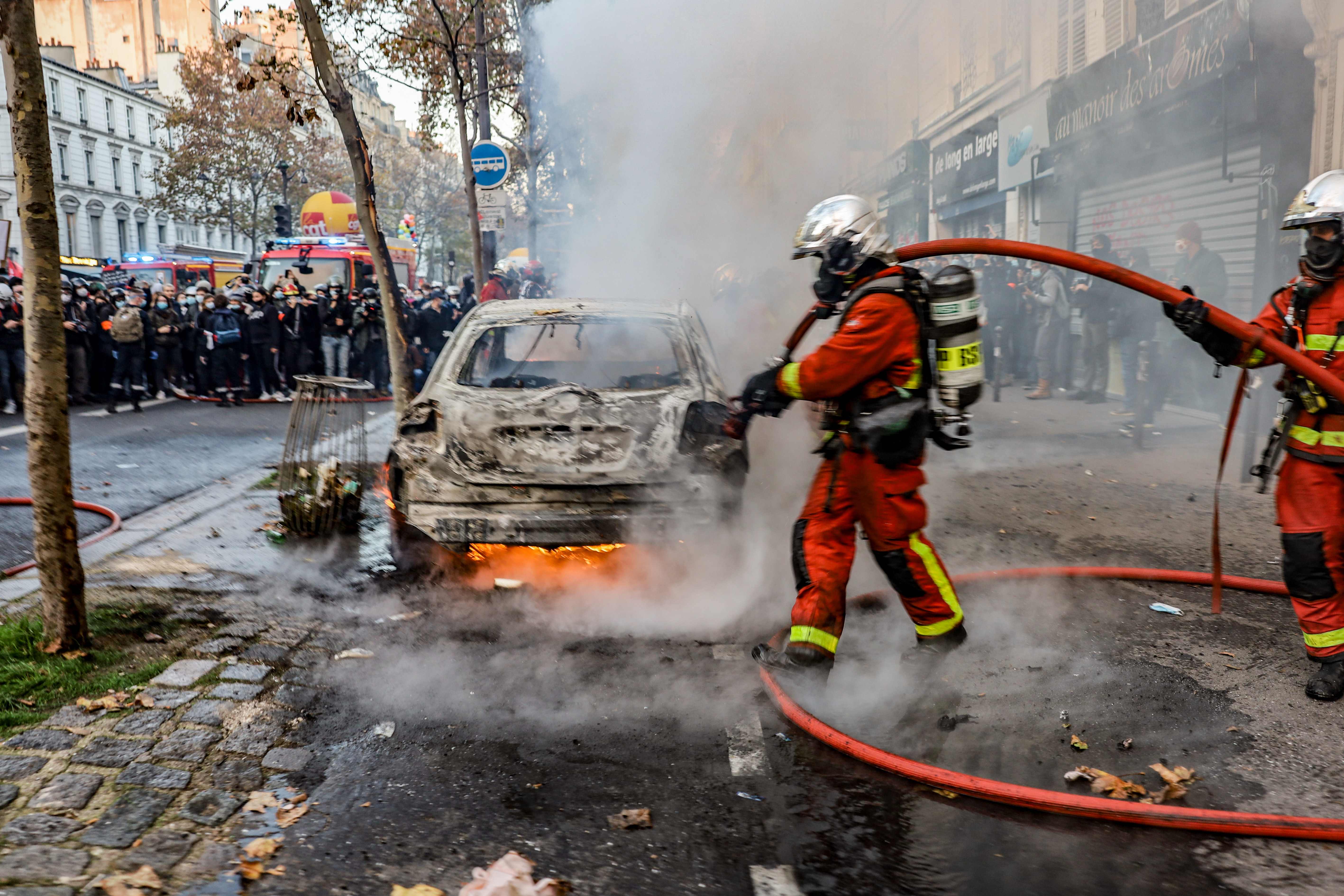Your support helps us to tell the story
From reproductive rights to climate change to Big Tech, The Independent is on the ground when the story is developing. Whether it's investigating the financials of Elon Musk's pro-Trump PAC or producing our latest documentary, 'The A Word', which shines a light on the American women fighting for reproductive rights, we know how important it is to parse out the facts from the messaging.
At such a critical moment in US history, we need reporters on the ground. Your donation allows us to keep sending journalists to speak to both sides of the story.
The Independent is trusted by Americans across the entire political spectrum. And unlike many other quality news outlets, we choose not to lock Americans out of our reporting and analysis with paywalls. We believe quality journalism should be available to everyone, paid for by those who can afford it.
Your support makes all the difference.The French government has backtracked over plans that would have banned members of the public from sharing images of police officers after numerous protests over the weekend.
More than 130,000 people took to the streets to demonstrate against the draft bill and in favour of free speech on Saturday. Over 46,000 people protested in Paris.
French president Emmanuel Macron’s ruling party had pushed for a new security bill that would make it illegal to publish images of police officers with intent to cause them harm. Doing so would be punishable by a year in prison and a €45,000 (£40,200) fine.
It comes after footage of black music producer Michel Zecler being beaten by three police officers in his own studio earlier this month went public. Mr Macron branded the video “shameful” for France.
Four French police officers held in custody over the beating have been placed under formal investigation, Agence France Presse and France Info said on Monday.
Two officers would stay in custody, while the other two were placed under judicial control.
Charges against the officers would include the use of racist language and intentional violence with weapons, Paris prosecutor Remy Heitz had said on Sunday.
The proposal of Article 24 - a key part of Mr Macron’s plans to appeal to right-wing voters by being tougher on law and order ahead of his 2022 re-election bid - had sparked outrage among activists, the media and the left of his own party.
Christopher Castaner, head of Mr Macron’s Republic on the Move (LaRem) party in the lower house of parliament, told a news conference on Monday: “We propose a new version of article 24 and a new version will be submitted.”
The government’s own independent ombudsman on human rights and French journalists said the article was too vague and could have a chilling effect on people wanting to expose police brutality.
Claire Hedon, the country’s human rights ombudsman, said it involved “significant risks of undermining fundamental rights”.
“Our democracy is hit when the population does not trust its police anymore,” she told the National Assembly.
Footage of Mr Zecler being violently arrested drew international criticism and made it even less tenable for Mr Macron to push forth Article 24, said French officials.
“We acknowledge that there are doubts, that some people consider that the right to inform is under threat… That is why it is necessary to clarify it,” said Mr Castaner.
His statement followed an emergency meeting on the bill at the Elysee palace earlier on Monday between Mr Macron and leaders of his parliamentary majority, as well as interior minister Gerald Darmanin, a former conservative.
The new version of Article 24 will be submitted at a later date, but it was unclear when. The bill was approved last week by the lower house but has now been sent to the upper house, where the conservatives have a majority.
Additional reporting by Reuters






Join our commenting forum
Join thought-provoking conversations, follow other Independent readers and see their replies
Comments